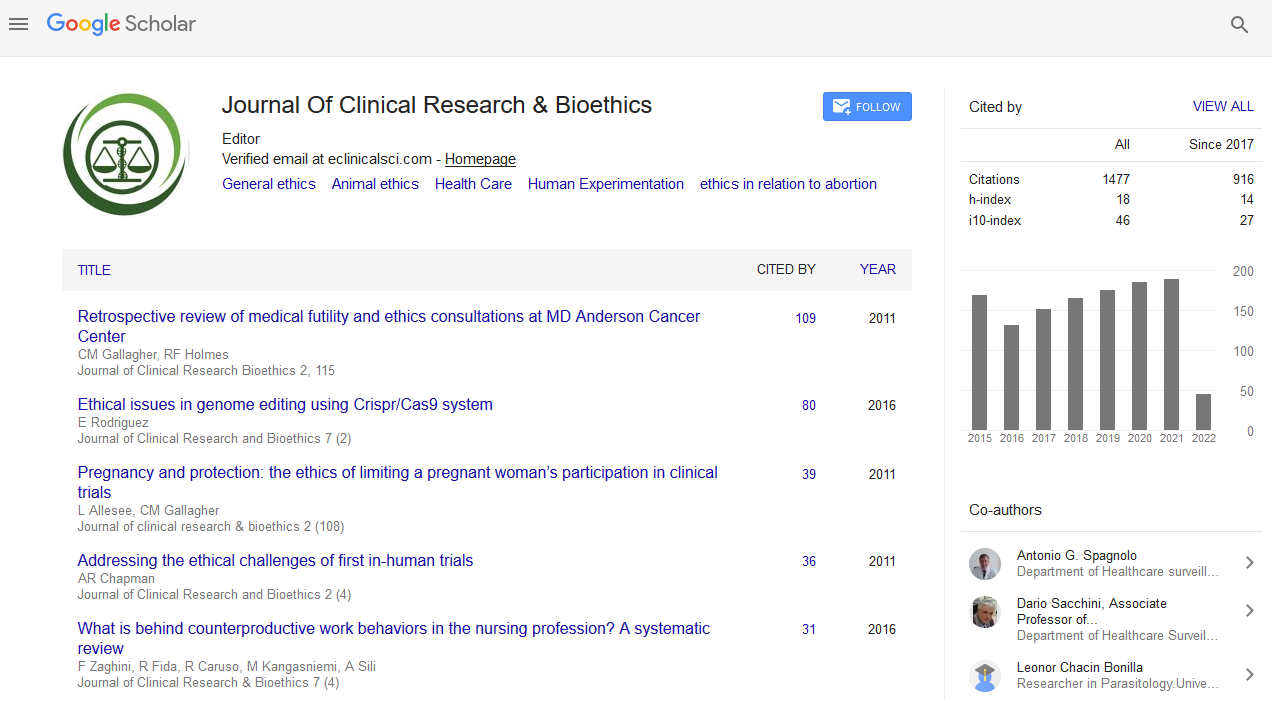PMC/PubMed Indexed Articles
Indexed In
- Open J Gate
- Genamics JournalSeek
- JournalTOCs
- RefSeek
- Hamdard University
- EBSCO A-Z
- OCLC- WorldCat
- Publons
- Geneva Foundation for Medical Education and Research
- Google Scholar
Useful Links
Share This Page
Journal Flyer

Open Access Journals
- Agri and Aquaculture
- Biochemistry
- Bioinformatics & Systems Biology
- Business & Management
- Chemistry
- Clinical Sciences
- Engineering
- Food & Nutrition
- General Science
- Genetics & Molecular Biology
- Immunology & Microbiology
- Medical Sciences
- Neuroscience & Psychology
- Nursing & Health Care
- Pharmaceutical Sciences
Abstract
Refusal to Autopsy: A Societal Practice in Pakistan Context
Autopsies or post-mortem examinations have become a common practice in Western medicine for verifying the cause of death, and to obtain additional scientific information on certain diseases. In monotheistic religions autopsies present several ethical questions even though the advantages attributed to post-mortems in the West are well acknowledged by people living in this modern world. In Islamic Republic of Pakistan where Islam is the prevailing religion followed by the Muslims, Pakistani society have diverse perception, assumptions and hypothesis on the concept of autopsy. This presumption is due to presence of diverse objections raised in religious and sociocultural context. In our context, death ritual and practices are surrounded by religious and cultural beliefs and has a major influence on post mortem examination. Religious objections face a debate where the oppositions are in conflict with the laws. A definite and clear-cut answer is not possible based on Islamic beliefs nonetheless, for the advancement of medical science and betterment of humanity autopsies seems to be accepted.


